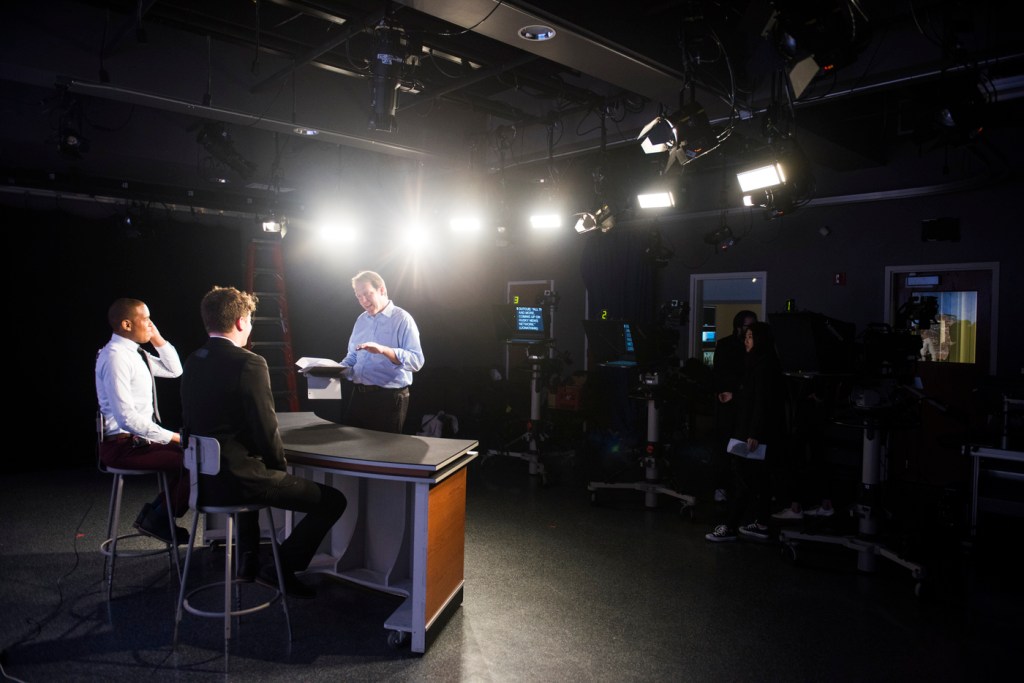Journalism professors lead research into future-proofing local TV news

Northeastern journalism professors Mike Beaudet and John Wihbey are concerned about the future of local TV news organizations. Those organizations, they say, are cornerstones to an open and democratic society in an era in which the majority of citizens still get their news from television. So, they’ve spearheaded a research project to find creative, innovative ways to update and improve the local TV news model.
“Local TV can’t keep doing things the same way and expect different results,” said Beaudet, who has 25 years of experience in the field. “We need to find creative ways to tell video stories that engage and inform the audience.”
Facing shrinking, graying, and continuously fractured audiences, local TV news stations have a rapidly closing window of opportunity in which to find new ways to survive and thrive in the future, Wihbey said.
“All the same things that spelled a decline for local newspapers are in effect for local TV news stations, but TV is in a much better position right now,” he said, thanks to varied revenue streams that have kept stations afloat much longer.
The research, which kicks off this summer and extends through 2018, will be conducted Beaudet, Wihbey, and other faculty and students out of the School of Journalism and the Media Innovation program thanks to a grant by the Stanton Foundation. Research will focus on the key areas of talking with journalists and TV crews in the field as well as developing stories and testing them with focus groups.
“As the culture changes, news changes,” Wihbey said. “What we’re trying to figure out is, ‘Is this a moment where it’s time for news to look different, feel different, and sound different?’”
Both Beaudet and Wihbey said that they believe there’s opportunity for local TV news stations to improve the quality of their reporting—by focusing more on hard news than soft features—while learning something from their more renegade online video-focused counterparts.
“We are approaching this research with a commitment to giving local television newsrooms a road map for how they can produce quality local television that also attracts viewers,” Beaudet said. “Quality is key. This is not about dumbing down newscasts and filling them with sensational stories with ‘good video’ that don’t impact viewers. We believe viewers deserve better and will respond to quality content if it’s presented to them in a compelling way.”
Indeed, both journalists feel an urgent need to do so.
“The worst thing would be to see local TV news not only not change, but evaporate altogether,” Wihbey said. “There is a real problem of news deserts: These places where there really isn’t any central, quality outlet for news and information about public affairs, and that should get us worried.”





